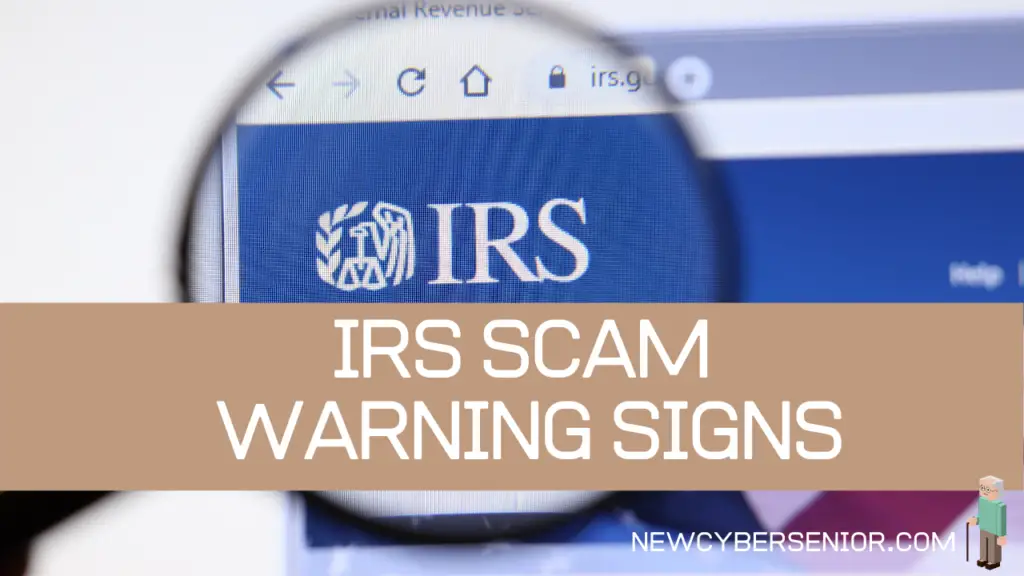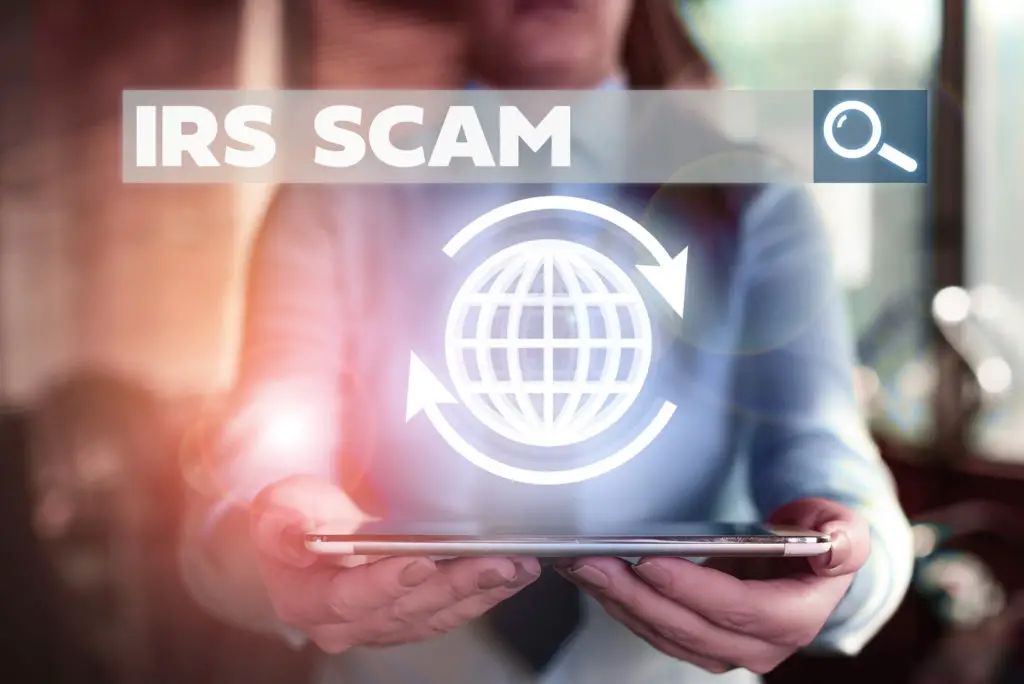
Tax scams, particularly IRS scams, work as well as they do because they prey on senior’s financial fears. There are few who wouldn’t be frightened by a threatening call, letter, or email from the IRS, which is what criminals want.
Though tax scams increase during tax season, scammers use the IRS name throughout the year, so seniors need to be able to identify on the lookout year-round for these scams. Additionally, when unique situations such as the 2020 Economic Impact Payment come up, IRS scammers start popping out of the woodwork. Scammers will take advantage of any situation to make money.
Though the IRS does use private collection agencies (PCA) to help collect overdue tax debts, you are notified in advance. The IRS will send you a letter that they are turning your tax debt over to a PCA, the notification will state when the debt will be transferred and to which PCA. If you are requested to make a payment to the IRS you should only make payments directly to the US treasury and not a third party.
Tax scams are all about the money whether they are directly taking payment from you or getting your personal information to steal your identity, the end result is always the same, and that’s to steal your money.
The good news is that there are ways to tell the scammers from the real IRS. By knowing the difference between a criminal and the real IRS is the best way to protect your money.
Common IRS Scams

To best identify IRS scams it is critical to know what forms IRS scams come in.
Phishing IRS Scam – The IRS does not send unsolicited emails requesting money or offering a refund. These fake IRS emails are called Phishing Scams and are attempting to steal your personal information. Never click on a link included in an unsolicited email claiming to be from the IRS. The links in these emails allow scammers to install malware into your computer giving them access to your personal information.
The IRS Letter – Because scammers know seniors are getting wise to their phone call scams, they have started sending out letters. These letters often make threats about liens and arrests. Many of these letters claim to be with the Bureau of Tax Enforcement or other bogus government departments.
If you are unsure if the letter is real, look up the number for the IRS and call the IRS directly. Do not use the phone number provided in the letter.
The Phone Call – This is still the most popular IRS scam, because it allows the scammer to directly manipulate their intended victim.
The 4 Nevers

There are four things that the IRS will never do, which is how you can tell the real IRS from the fakes.
- The IRS will never demand immediate payment requiring you to pay using a specific payment type such as prepaid debit card, gift card, or wire transfer. These are payments are not valid forms of payment to the IRS. Instead, the IRS will send you a bill in the mail requesting payment be made to the US Treasury.
- The IRS will never call and make the following threats if you do not pay them over the phone:
- Sign a warrant for your arrest
- Have local law enforcement or other branches of law enforcement come and arrest you
- Revoke your license
- Withhold your Social Security check
- The IRS will never deny the taxpayer an opportunity to appeal the amount owed or ask questions about the tax debt
- The IRS will never take payment over the phone using a credit card or debit card
7 Red Flags its an IRS Scam

In addition to the things the IRS will never do, there are 7 other red flags seniors should be on the look out for to keep their money safe. Many of these red flags apply to other types of scams too, like insurance scams and medical alert scams.
Robocalls – IRS scam phone calls are often, though not always, generated by a robocall, an automated voice asking you to push a certain button to speak with an operator. If you get a robocall from the IRS hang up, it’s a fake, the IRS does not use robocalls to collect overdue tax money.
The Pause – If you answer the phone and there is a delayed response, hang up its not the IRS.
URGENT – If you receive a call that starts out with “This is an Urgent Message” hang up, if it was urgent they wouldn’t have a robot calling you and you would have already received something in the mail.
Threats – If the scammer claiming to be an IRS agent starts threatening you with things such as:
- Revoking your license
- Withholding your Social Security check
- Freezing your accounts
Hang up! Remember, the IRS does not request payment or account information over the phone.
IRS Letter – The IRS sends letters, and though it can be difficult to identify the real from the fake, a letter from the IRS will:
- Arrive in a government envelope
- Have a valid IRS seal
- Include an identification number in the righthand corner
- Will provide your rights as a taxpayer or appeal options
- Include a shortened tax ID number
Refund – If the caller claims to be with the IRS and tells you the good news that you have a refund coming and they just need your account information to apply the credit to your account it is a scam. The IRS will never request personal payment information over the phone.
Email, Text, or Social Media – If you are contacted using email, text, or social media requesting personal information, it is a scam, the IRS does not use these avenues to get your information.
What You Should Do if You Think it is an IRS Scam

If you think you have been contacted by a scammer claiming to be from the IRS it is critical that you report them immediately, it is the only way to stop these criminals.
If you receive an unsolicited email claiming to be from the IRS report the email to the IRS at phishing@irs.gov.
If someone appears to call you from the IRS, do not trust your caller ID; caller ID can be manipulated to reflect the IRS name and number. Request to call the IRS back, if they offer you a telephone number do not use it, instead call the IRS directly at 800-829-1040.
If you know you do not owe money hang up immediately, and report the call online to the IRS Impersonating Scam Reporting or call their 800 number at 800-366-4484. Also, you can report the scam to the FTC on their website, just note IRS telephone scam in the remarks section.
If you receive communication from the IRS and think you owe the IRS money or are unsure if you do, call the IRS directly at 1-800-829-1040 to get more information.
Leave a Reply